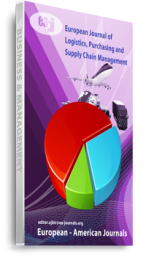There is a growing concern on how pharmaceutical products are managed in the market when they are damaged or reach end of life. As the society becomes informed, Pharmaceutical industries are experiencing the challenge of complying with many regulatory requirements from various regulatory institutions. Reverse logistics sometimes referred to as “product-take-back” is seen as one of the concepts as the wider concept of green supply chain management that can possibly address this problem. The study seeks to examine the effects of reverse logistics on organizational performance in the Pharmaceutical Manufacturing Companies in Ashanti region. A descriptive cross-sectional study was used to obtain empirical evidence to help address the existing gap. The study considered all Pharmaceutical Manufacturing Companies in the region and therefore census sampling was done. The study sample consisted of 30 managers of Pharmaceutical industries. Thirty (30) top managers of Pharmaceutical Manufacturing Companies were recruited using a simple random sampling technique. With the aid of the Open Data Kit (ODK) software designed for Android OS, data was collected using mobile phone device. The results indicated that reverse logistics forms part of the strategic positions of most pharmaceutical manufacturing companies in Kumasi (83.3%), and it has a positive effect on performance (r=0.44, p=0.015). Assurance of information quality systems (r=0.60, p=0.00) and promotion of collaboration among the actors of the supply chain (r=0.74, p=0.00) have positive effect on the performance of pharmaceutical companies. To ensure higher returns on investment in pharmaceutical manufacturing companies, stakeholders should encourage and welcome efforts that seek to guarantee and foster information quality systems, collaboration among supply chain actors, and the adoption of reverse logistics systems.
Keywords: Organizational Performance, information quality systems, reverse logistics, strategic positions, supply chain actors

